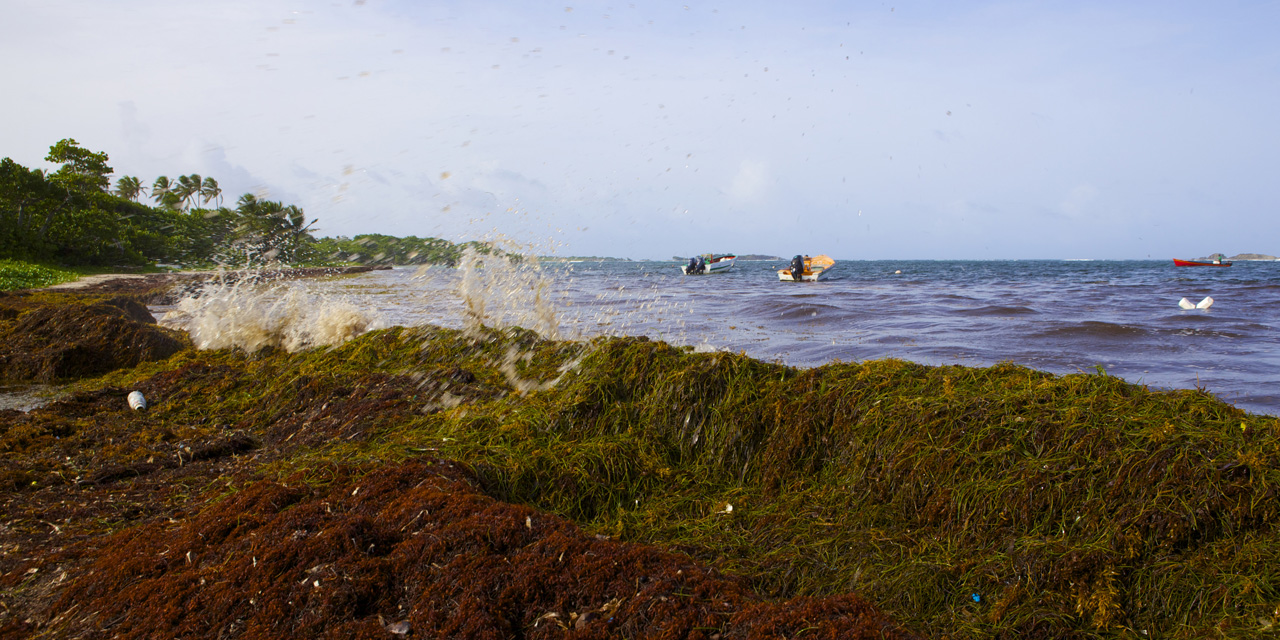INVESTIGATION
For nearly ten years, these brown algae with toxic emanations are stranded on the beaches of the Atlantic and make tourists flee: sargasses are a plague for Caribbean businesses. In an attempt to find a solution to this problem, an international conference is currently being held in Guadeloupe, bringing together some ten countries to discuss the subject.
"We are closed since May, we lost 600,000 euros in turnover," laments Roméo, a young Guadeloupe who took over the restaurant of his parents. The wooden settlement is located on a beach now polluted by decomposing Sargassum, which gives off a foul stench of rotten eggs. Between 2018 and 2019, we lost 90% of the turnover, "he continues." The phenomenon began at home in 2011. If we combine all the periods of closure, we can consider that we closed in all two and a half years."
Overall losses estimated at around 5 million euros in 2015
The Chamber of Commerce and Industry of Guadeloupe conducted a study in 2015 and calculated that about 400 companies, restaurants and hotels for the most part, had lost about 5 million euros. "On average, hotels have lost around 60,000 euros and 10,000 euros for other businesses," says Mathias Bini, head of economic studies. "The fishermen had 20 days out at sea lost because they could not get out their boat."
>> READ ALSO: Guadeloupe: Hulot wants a collection of seaweed Sargasso in less than 48h
A second study, which was conducted last year, however, revealed that the economic losses related to the proliferation of these algae were divided by ten, thanks to the collection that was structured on the island.
The conference held in Guadeloupe should allow to emerge other solutions to get rid of Sargassum. A project led by Guadeloupe researchers has particularly attracted the attention of the authorities. They propose to burn these algae and make activated charcoal to purify the water highly polluted by pesticides.
At the end of this summit, a political resolution must be signed in the presence of Prime Minister Edouard Philippe.

